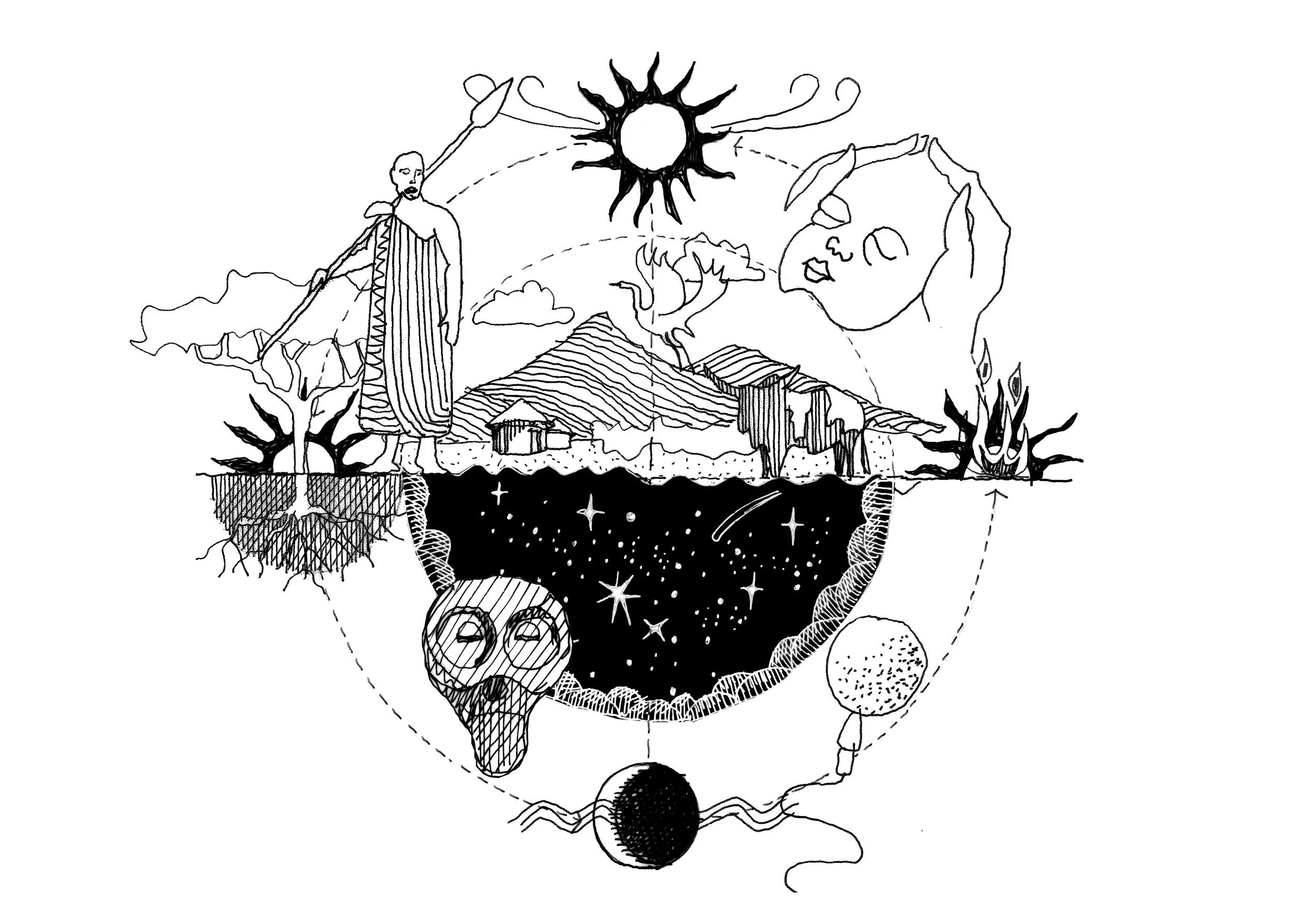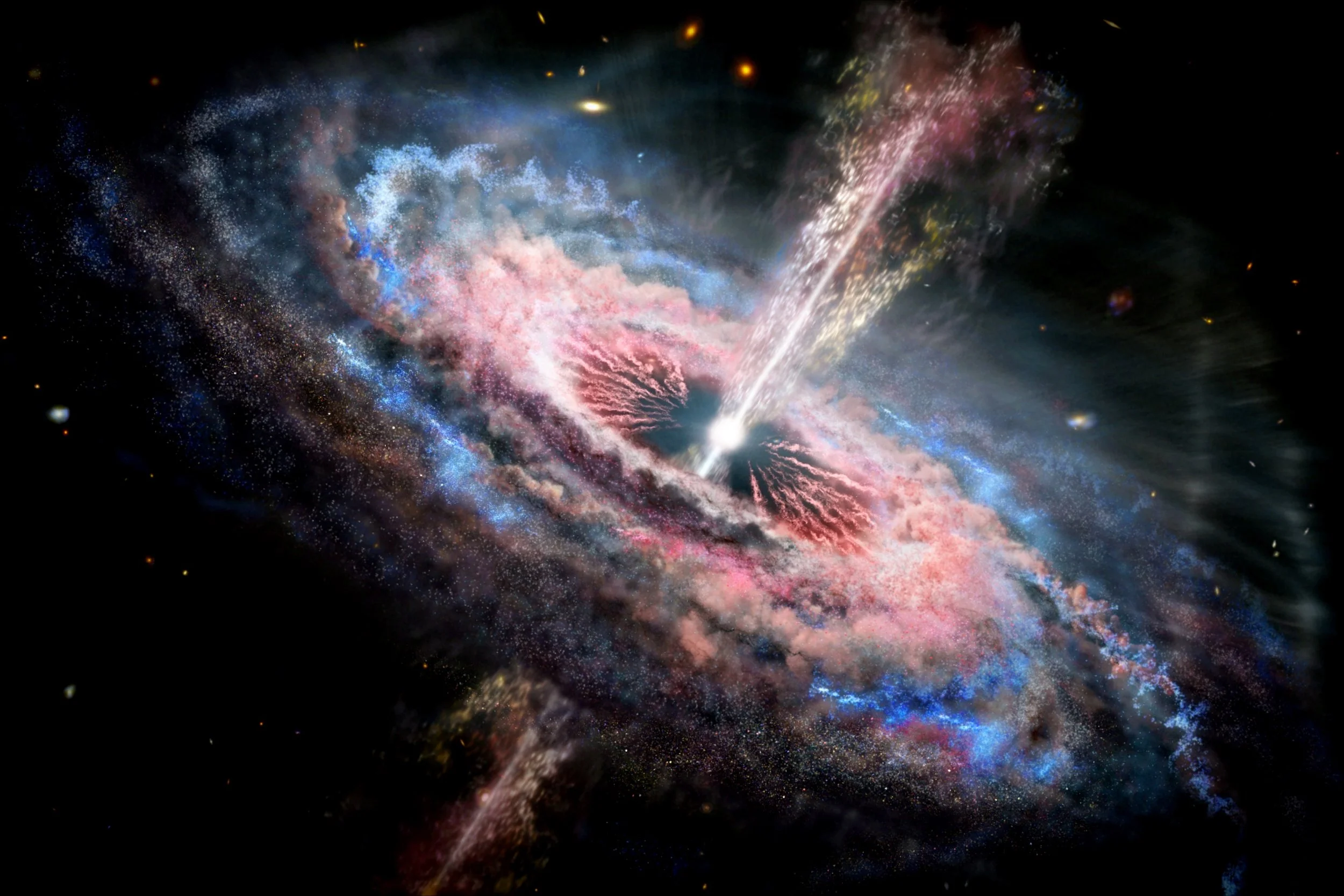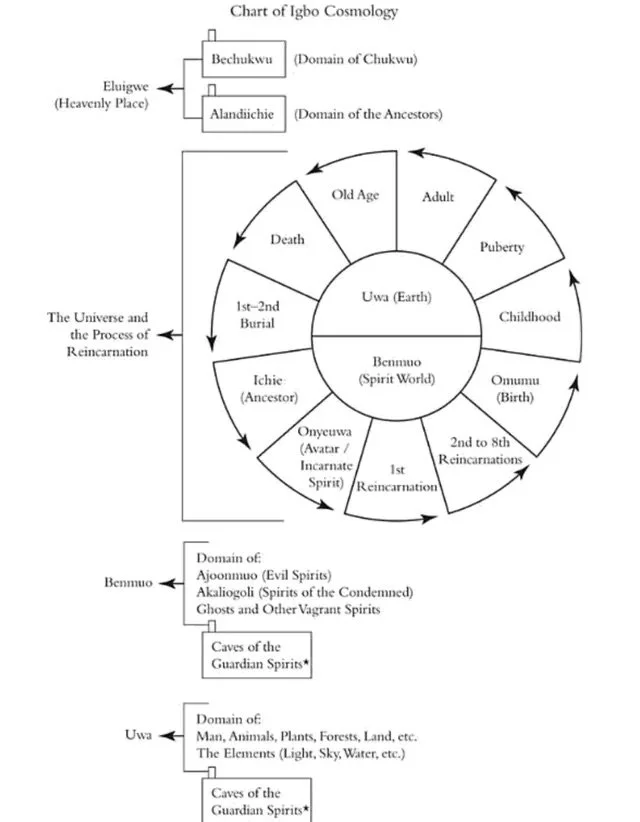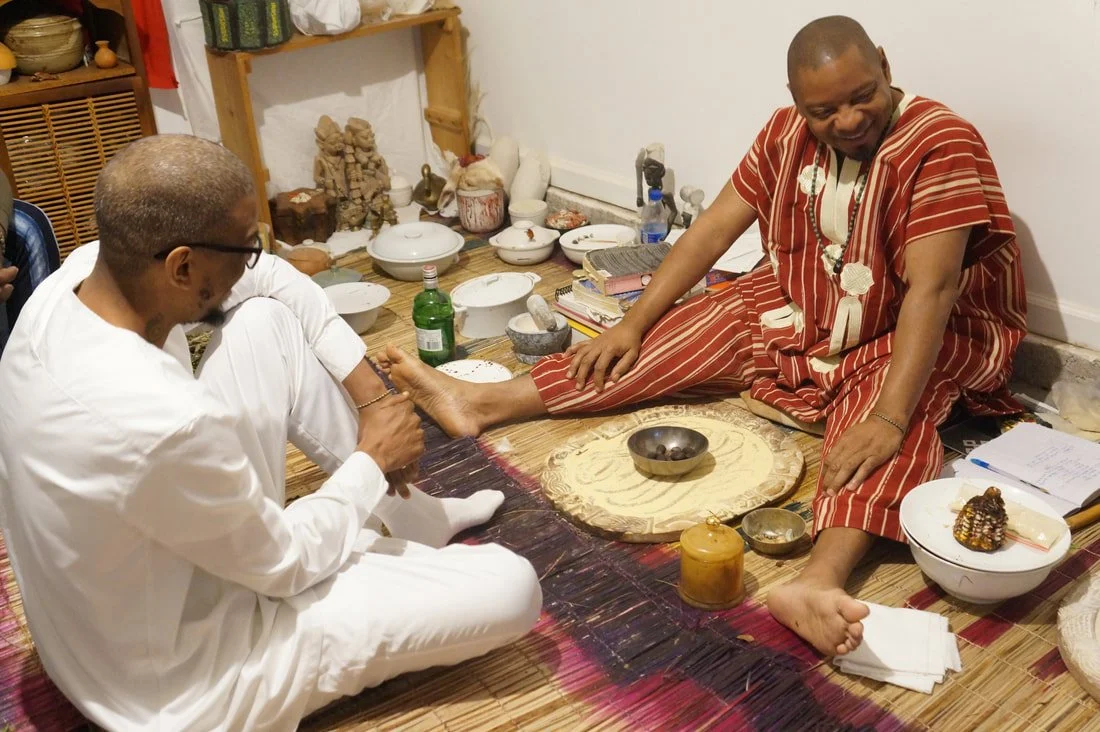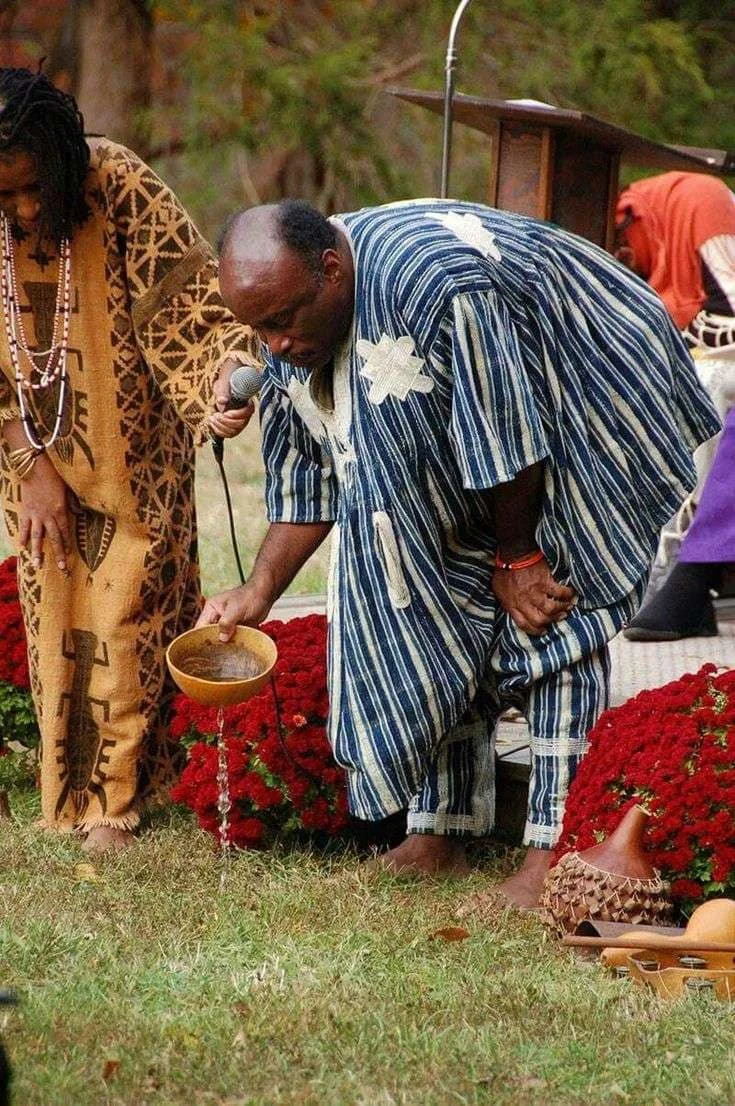The 6 Foundational Tenets of African Sacred Cosmology
Reclaiming Indigenous African Thought, Purpose, and Spirit
I watched a lecture given by Dalian Adofo of Ancestral Voices and was inspired to share my thoughts on how as truth seekers we can begin the journey of decolonizing our worldviews to match what existed prior to colonial influence. I have come to learn that one of the best approaches is to start with the fundamental aspects of our belief systems as the core framework for paradigm shifting.
Decolonizing our spiritual worldview begins with unlearning the assumptions we've inherited through colonial religions and systems of thought. African sacred cosmology is not just a spiritual system; it’s a way of perceiving reality, where nature, spirit, community, and purpose are deeply intertwined. Below are six foundational tenets that illuminate the African spiritual worldview, offering a framework to re-anchor ourselves in ancestral truth.
1.
The Supreme Creative Force:
The Origins of Existence and Creation
Credit: NASA, ESA and J. Olmsted (STScI)
At the heart of all African cosmologies is a Supreme Source—Olódùmarè in Ifá, Chukwu in Odinani, Nzambi among the Bakongo. This source is not a distant god who intervenes from above, but an all-pervasive creative intelligence, both transcendent and immanent.
Creation is not a one-time event. It is ongoing, unfolding rhythmically and cyclically. The universe is not static but constantly becoming.
In the Ifá tradition, Olódùmarè births existence through divine thought (Orí) and delegates creation to intermediary forces (Orisha), showing a layered cosmology.
In the Dagara cosmology of Burkina Faso, the Earth is seen as the dreaming body of the Creator, and humans are dream-fragments born to fulfill specific soul contracts.
Understanding this challenges the Western idea of a creator "outside" reality. In African cosmology, we are not separate from the Source, we are its expressions.
2.
Forces of Nature:
Elemental Energies in Relationship with Humanity
Nature is alive. Every river, tree, stone, wind, and mountain is ensouled. African traditions recognize elemental intelligences or spirits, each representing aspects of the divine in action.
Among the Yoruba, the Òrìṣà like Ṣàngó (lightning/fire), Ọya (wind/storm), and Ọṣun (freshwater/love) govern natural domains and human traits.
Among the Igbo, forces such as Amadioha (thunder and justice) , Ala (earth and fertility), Ogwugwu (Dark Matter) are revered as powerful cosmic regulators.
These forces are not mythological metaphors; they are living intelligences that humans are meant to be in dialogue with. Harmony with nature is spiritual alignment.
This tenet calls for a paradigm shift, from domination of nature to communion with it.
3.
Personhood and Ancestorhood:
The Cycle of Human Purpose
Credit: An Orchestra of Minorities Kindle Edition by Chigozie Obioma
African cosmologies offer a sophisticated view of personhood. A person is not just a body with a soul. One is a spirit being with a divine essence (Ori, Chi, Kra, etc.), sent to earth to fulfill a purpose within a wider collective destiny.
Among the Akan, the soul (Kra) is a fragment of divine essence assigned to fulfill a unique purpose.
In Odinani, the Chi is the personal god, a spiritual twin guiding one's destiny.
Life is not individualistic; it’s a sacred mission. After physical death, the journey doesn’t end. If one lives honorably, they become an ancestor (ndi ichie among the Igbo, egungun in Yoruba) still active in communal affairs.
The African view of personhood is cosmic, relational, and intergenerational. To decolonize our identity is to remember that we are more than flesh…we are assigned light.
4.
Divination:
Dialogue with the Divine Blueprint
Credit: www.obafemio.com
To the original intention, Divination is not fortune-telling. It is sacred technology to consult the divine mind and realign one’s life to their spiritual contract.
In Ifá, the Babaláwo uses the Ọpẹ̀lẹ̀ or Ikin seeds to read verses from the Odù corpus, revealing one's path and ancestral guidance.
Among the Dagara, cowrie shells, water bowls, or nature signs are read by diviners who enter trance states to speak with spirit.
In Odinani, a Dibia uses Afa strings to bring forth guidance that assists a person in learning about their soul mission or what obstacles stand in their way that needs to be removed.
Divination (aka ‘to Divine’) restores clarity. It reconnects the individual with divine intelligence and cosmic timing.
Where colonial paradigms teach us to look outward for validation, divination calls us inward…into silence, symbols, and sacred codes of truth.
5.
Libation:
Invocation and Communion through the Spoken Word
Credit: Ewe Pride
Words are in themselves spirit. And libation is one of the oldest and most powerful forms of African prayer which is done by offering often water, palm wine, gin, kolanut etc. to the Earth and ancestors while invoking sacred names.
In most African traditions, libation is poured facing the East (symbolizing origin or rebirth), the Earth, and then calling ancestors and benevolent spirits into presence.
The Ga people of Ghana use libations to open every ceremony, courtship, or negotiation; calling divine witness to human affairs.
This practice reminds us that prayer isn’t begging. It’s calling forth memory, activating presence, and sealing intentions with the unseen.
To reclaim libation is to reclaim the sacred word and the right to speak with Spirit in our indigenous tongue.
6.
Ritual & Ceremonies:
Veneration and Communication with the Spirit Realm
Credit: The Dance, Art and Ritual of Africa - by Michel Huet
Ritual is the grammar of the spirit world. It is how we realign, heal, give thanks, mark time, and remember who we are.
In Yoruba culture, naming ceremonies, ancestral feasts, initiation rites, and seasonal festivals are all moments of spiritual synchronization.
Among the Dagara, grief rituals are communal and ecstatic. Allowing spirit to move through bodies and release stored emotion.
The Dogon tribe of Mali hold masked ceremonies to honor ancestors and cosmic deities during their Sigui cycle, which is held every 60 years.
Ceremony returns the sacred to everyday life. It transforms space and time into portals for divine presence.
In a colonized worldview, ritual is dismissed as primitive. In African sacred cosmology, it is medicine.
Final Reflection:
Unlearning to Remember
To walk the path of African cosmology is to return to the root of being. Where the divine, the Earth, and the self are braided together in purpose.
This is not simply about reclaiming rituals or wearing beads. It is a full paradigm shift, a remembrance that:
We are not orphans in the universe
Spirit is everywhere, always speaking
Life is not random, but encoded with purpose
Our ancestors ALWAYS walk with us, guiding our steps
This is what it means to decolonize your spirituality. Not just by rejecting external systems, but by returning inward to what has always lived in your bones.
References
African Sacred Cosmology by Ancestral Voices
→ A rich multimedia resource for decolonizing African spirituality through film and education.
"African Cosmology of the Bantu-Kongo" by Kimbwandende Kia Bunseki Fu-Kiau
→ Explores cosmogenesis, the concept of the Supreme Force (Nzambi Mpungu), and the sacred spiral of existence."The Handbook of Yoruba Religious Concepts" by Baba Ifa Karade
→ Offers foundational understanding of Olódùmarè, the Orisha, and Yoruba cosmology."African Religions & Philosophy" by John S. Mbiti
→ Classic introduction to the philosophical foundations of African spiritual worldviews."Of Water and the Spirit" by Malidoma Patrice Somé
→ An autobiographical initiation into the Dagara worldview: personhood, spirit purpose, and the ancestral world."Ritual: Power, Healing and Community" by Malidoma Patrice Somé
→ Includes details of Dagara divination systems and the spiritual logic behind them.

